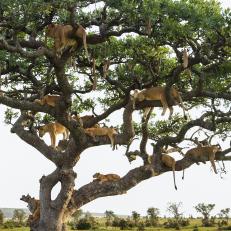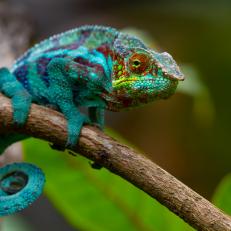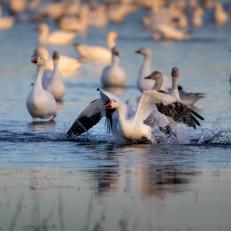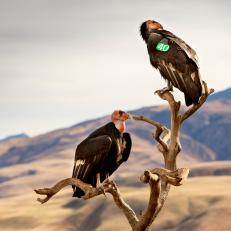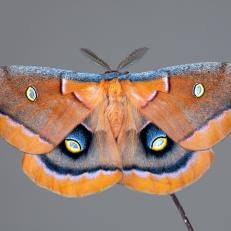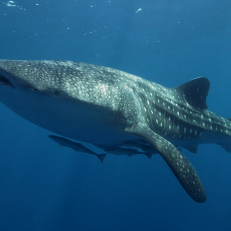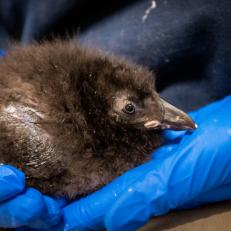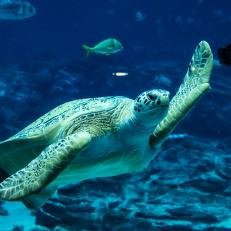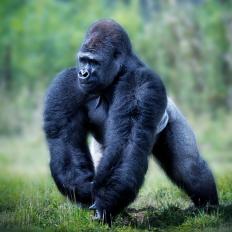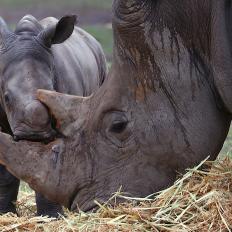Meet the Lion Guardians
The Lion Guardians is a conservation group based in the Amboseli-Tsavo ecosystem that is dedicated to mitigating conflicts between people and wildlife, monitoring lion populations, and helping communities live with lions.
Check out more about the Lion Guardians and catch up with Dr. Leela Hazzah as she spoke with The Explorers Club on Monday, October 26th.

An estimated half of Africa’s wild lions have disappeared in the last 50 years; however, in one part of Kenya, lions have recently had a remarkable recovery. Since Lion Guardians began its work in the Amboseli ecosystem, the local lion population has grown by nearly seven-fold.
The idea for Lion Guardians came from the Maasai murrans [warriors] themselves - the very group that was primarily responsible for killing lions. The murrans argued that since they had excellent wildlife tracking skills and knowledge of the bush, weren’t they in the best position to help conserve the lions they lived among? Dr. Leela Hazzah and Dr. Stephanie Dolrenry saw the incredible potential in their idea, and founded Lion Guardians.
The Lion Guardians approach blends traditional knowledge and skills with modern, rigorous science. For more than a decade, we have employed and trained local murrans to help monitor lions, mitigate conflict, and serve as conservation ambassadors in their communities.
Under this model, the relationship between communities and lions has changed. According to one of our longest-serving Guardians, Kamunu Saitoti, “the Lion Guardians program has brought peace between the Maasai and lions.” Today, almost no lions are killed locally in traditional rite-of-passage hunts.
Most human-lion conflict in Amboseli now stems from lion attacks on livestock - the backbone of the pastoralist Maasai society. Lion Guardians has spent years addressing this complex problem by working to understand both the factors pushing lions to attack livestock and the factors that are making livestock more vulnerable to attack.
When tensions flare, intensive on-the-ground conflict mitigation is critical for assisting communities and protecting lions. Our mobile mitigation team is the first to respond to emerging conflict; their work puts together all the most successful pieces of Lion Guardians’ work — our finely-honed tracking skills, the information we painstakingly collect about each and every lion in our operating area, the innovative tools we have developed to deter lions from attacking livestock, and our close relationship with communities.
Occasionally, after livestock is attacked, people retaliate by poisoning carcasses which can then kill lions, other carnivores, and endangered birds of prey. Here, after one such suspected poisoning, the Lion Guardians team works with other ecosystem stakeholders to burn the carcass to avoid wildlife deaths. Sometimes we are too late and lions are lost, but these instances double our resolve to increase our impacts. We are currently raising funds to expand our mobile mitigation efforts to respond even more quickly to even more conflicts.
Overall, the Lion Guardians model is one of the most innovative and successful models for conserving lions on community lands in Africa. Our collaborative, community-based approach has helped reduce lion killing by ninety percent in our operating area and has improved outcomes for those that live alongside lions.
Our focus on people - not just lions - has been critical to our success. During the COVID crisis, we have continued to support communities by sharing strategies for staying healthy and distributing safety equipment, including more than 3,000 bars of soap and 7,000 face masks.
The Guardians are the custodians of wild lions in this landscape, but it takes a global community to enable their critical conservation efforts. Join our conservation community and support Lion Guardians' work by visiting www.lionguardians.org or contacting us at info@lionguardians.org.









